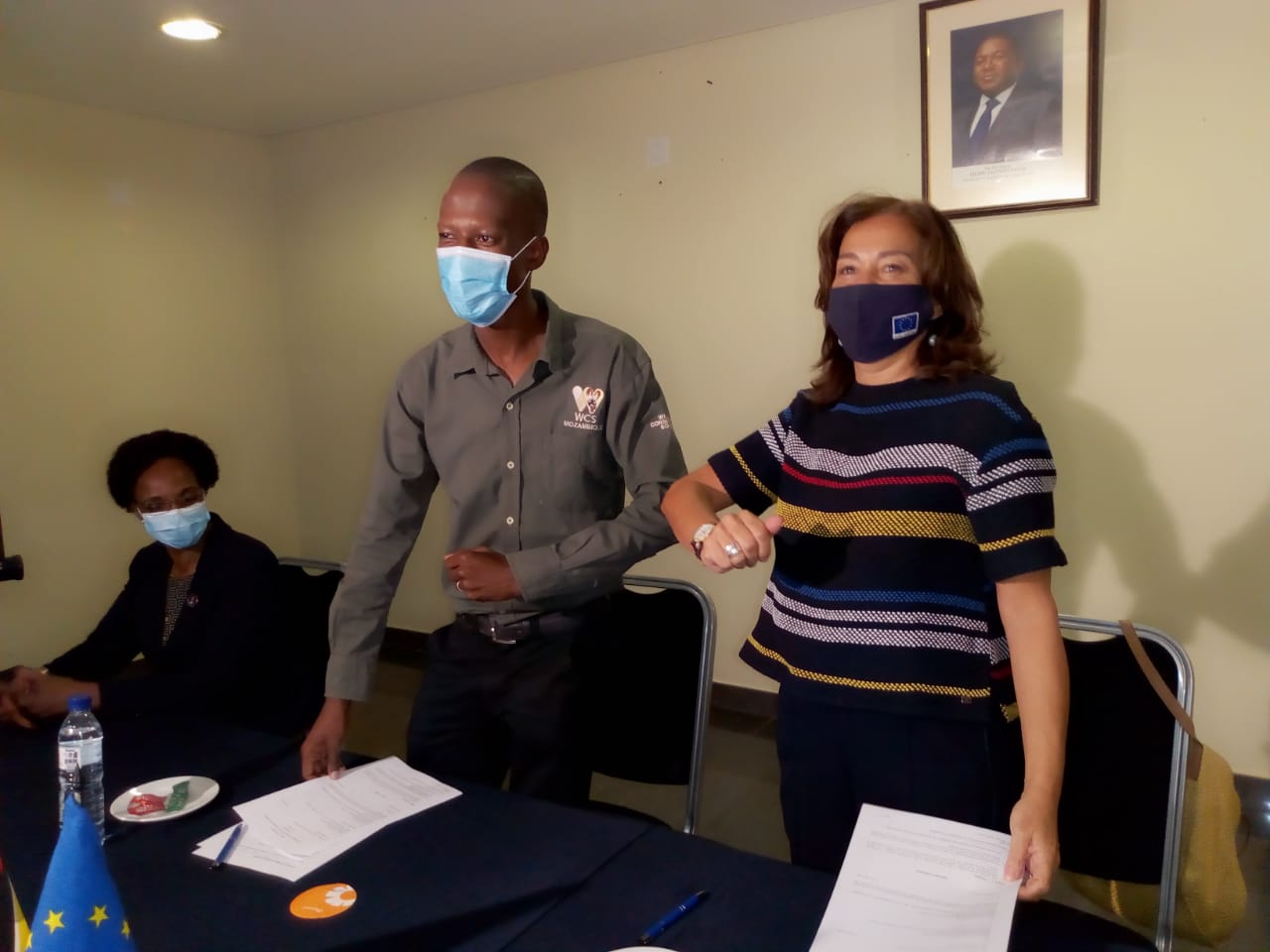The Head of Cooperation of the European Union Delegation to Mozambique, Isabel Faria de Almeida, and the Program Director of Wildlife Conservation Society (WCS), Nilton Cuna, signed a 4.4 M EUR (EU financing 83 percent) project aiming at disrupting illicit supply chains of wildlife in Niassa Special Reserve, the largest conservation area in Mozambique. This event took place in the city of Lichinga on the 19th November.

Photo: Nilton Cuna (left) and Isabel Faria de Almeida posed for the photo after signing the agreement.
Many species in the Niassa Special Reserve (NSR) face significant threats from poaching (elephant , lion and leopard , pangolin , and other wildlife) and illegal logging (timber products for local and international trade). Furthermore, wildlife trafficking undermines improvements in local livelihoods, destabilizes communities, deters investment in tourism and social sectors, promotes the spread of zoonotic diseases, weakens the rule of law, exacerbates corruption, and funds violent armed groups and organized crime syndicates.
The signing occurred at the margins of the EU – Government of Mozambique political dialogue meeting that took place from the 17th to 20th November in Lichinga, where biodiversity conservation and challenges posed by climate change were part of the agenda.
More specifically the project will seek to:
- reduce community-based threats to wildlife and other natural resources, support the community’s livelihood and reinforce its involvement in the management and development of the Reserve;
- enhance conservation of elephants, lions, leopards, African wild dogs, pangolin and Miombo woodlands, through coordinated actions against poaching and other illegal activities;
- improve relevant governance processes, supporting efficient mechanisms of judicial follow-up.
To reach these objectives, the project will assist the Reserve Administration to establish and enforce border traffic controls for conservation through a combination of intelligence and coordinated law enforcement (LE), and develop some additional infrastructure to enable these actions. Additionally, it will increase community support for conservation in the Reserve through livelihood improvements, development of a community conservation strategy, establishment of natural resource governance systems, strengthening of resource tenurial arrangements for local residents, increased protection of communities from human-wildlife conflict, and the continuation or development of livelihood support programs.
WCS, as the exclusive non-profit partner of ANAC to co-manage Niassa Special Reserve, will implement this 3-year project in partnership with Flora&Fauna International (FFI).